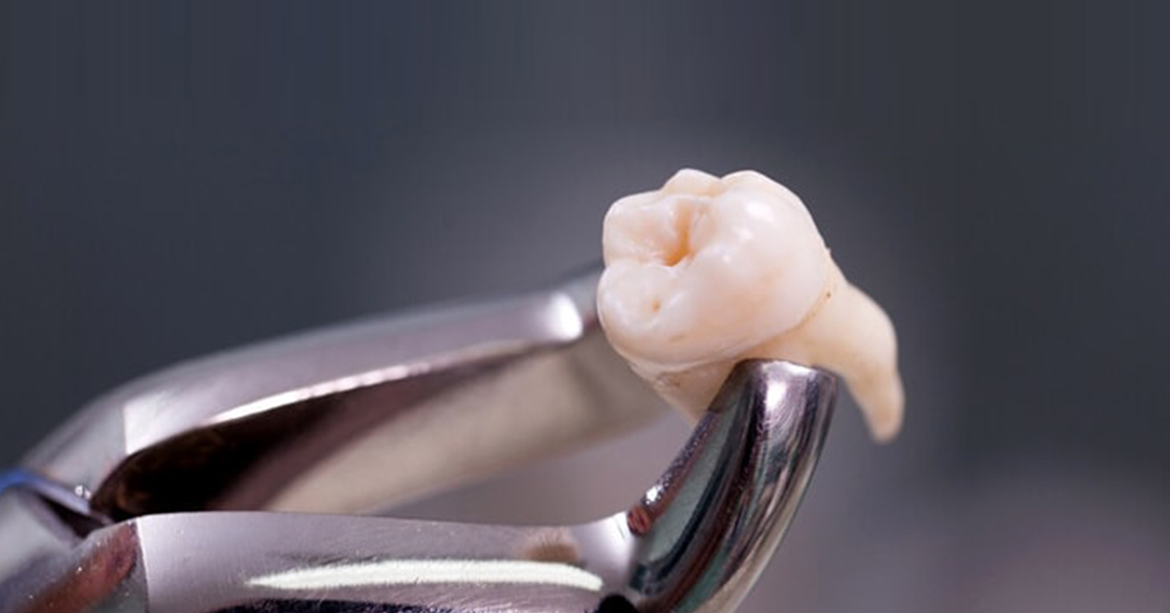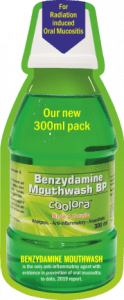Menu

With age comes wisdom. As do wisdom teeth.
You must have heard many horror stories from friends and relatives alike about their wisdom tooth extraction. While the experience can be harrowing, it is not always the case. So, if the news of getting a wisdom tooth extraction is giving you the cold sweats, you’re at the right place.
This article will help you understand what wisdom teeth are, when they need to be extracted, and how to quickly recover from the surgery.
Wisdom teeth or third molars are the final set of permanent teeth that grow out in most people by their late teens or early 20s (i.e. between the ages 17 and 25). About 65% of people have wisdom teeth and out of that, 85% need an extraction surgery. In some people, wisdom teeth don’t even develop while in others still, they cause no problems whatsoever.
Wisdom teeth can sometimes be misaligned. In such cases, they grow out either horizontally, at an angle facing away from or towards second molars or at an angle facing inward or outward. Wisdom teeth can also be impacted. In case of impacted wisdom teeth, the teeth remain within the soft tissue and erupt just partially through the gum.
Under both of these conditions, wisdom teeth can cause a number of problems for a healthy mouth. Hence, an extraction surgery must be performed in order to avoid dental problems like:
An extraction may also be needed if you have caries or gum disease or if your mouth is too small to fit the new set of teeth (overcrowding).
Depending on the complexity of the procedure, your dentist or an oral surgeon may use one of three types of anaesthesia – local, general, or sedation.
Once the anaesthetic is administered, your dentist will make an incision in the gum tissue. This exposes the tooth as well as the bone. Now, the dentist will remove the bone to gain access to the tooth root. After this, he or she will remove the wisdom tooth and clean the site of any debris. Once the extraction is complete, the dentist may close the open wound with stitches (not everyone needs stitches), and place a gauze over the extraction site to promote the formation of a blood clot.
Cautionary Tip: Since you will be under anaesthesia, you may have to bring someone along for the procedure (even if it’s only a day procedure) so that they can drive you back home.
Following the surgery, there will be a recovery period that will last for a few days. During this period, some pain, discomfort, and swelling are normal. To make sure that your recovery goes as planned, below are a few helpful tips that you can follow after the extraction procedure:
Your dentist or oral surgeon is your best guide for a quick and easy recovery. Since each case is different, your dentist will provide you with instructions specific to your case. Make sure that you follow his or her post-surgery instructions to the letter.
It is normal for some blood to ooze out the first day post your extraction surgery. You may even experience redness in saliva while rinsing. It is advisable to first rinse and then place a gauze pad over the area to control the bleeding. To minimize the bleeding, you should try to sit upright and avoid vigorous exercise for a few days.
You should also avoid excessive spitting to avoid the blood clot from getting dislodged out of the socket. This condition is known as dry socket and it can hamper your recovery process. According to a study published in the Journal of Oral and Maxillofacial Surgery, chlorhexidine can prevent dry socket. So, ask your dentist about applying a chlorhexidine gel like Hexigel to prevent the condition.
A wisdom tooth extraction is bound to cause you some pain. However, your dentist or oral surgeon will prescribe you with some painkillers to manage the pain. Make sure to take them as prescribed to avoid pain and carry about your daily life.
Getting your third molars removed can cause swelling and bruising of your cheeks. To ease the swelling, use an ice pack every twenty minutes for twenty minutes. The swelling usually goes down in two to three days. Bruising, however, may take a longer time to heal.
When it comes to a long-term recovery, it’s best to take things slow before you rush back to your daily routine. So, make sure that you get as much rest as you can for a few days after the extraction. Moreover, keep your head elevated by resting on pillows.
Tobacco products, whether cigarettes or chew tobacco can be detrimental to your recovery. In addition, the act of smoking can also cause a dry socket, which will set your recovery back. Hence, avoid using any tobacco products for at least a week after the surgery in case you use them.
Your dentist will advise you not to brush, rinse, spit or use a mouthwash for the first 24 hours after the procedure. Once you resume brushing your teeth, make sure to be gentle around the wound. You should also gently rinse your mouth with an antibacterial mouthwash or warm salt water every two hours and after meals.
Make sure that you drink plenty of fluids after the surgery. This includes water and homemade fruit juices. You should avoid caffeinated, carbonated, alcoholic and hot beverages for the first 24 hours after the procedure as these can interfere with the healing process. You should also avoid drinking from a straw for a week because the sucking action can cause the blood clot to dislodge and form a dry socket.
For the 24 hours after the surgery eat only soft foods. Once you can tolerate eating solid foods, stick to semi-soft foods. Avoid chewy, hot, and spicy foods for some days as they can get stuck in the socket or cause irritation to the wound.
While your wisdom tooth extraction recovery can be painful, with the right steps you can make this period much more comfortable. We hope that these tips will prove useful to you after your surgery.
Sources:


| PRODUCTS | QTY | PRICE | VALUE in INR |
|---|
| PRODUCTS | QTY | PRICE | VALUE in INR |
|---|
4 thoughts on “9 Tips For Quick Recovery Post Wisdom Tooth Extraction”
If people that write articles cared more about writing great material like you, more readers would read their content. It’s refreshing to find such original content in an otherwise copy-cat world. Thank you so much.
Visit Us : https://yes.dental/
Thank you for the comment about refraining from brushing, rinsing, or spitting for 24 hours after surgery. My sister is going to get her wisdom teeth out soon, but she has no idea how to deal with that. I will be sure to send this to her so she will know how to make sure she recovers well.
Hi. fast of all Than you so much for you tips. This is very helpful information.Its help me too know more about Wisdom teeth. Wisdom teeth are the third set of molar teeth situated at the back of a person’s mouth. Thank you again for helping me by this best article.
Hi. Fast of all Thank you so much for you tips. This is very helpful information.Its help me too know more about Wisdom teeth. Wisdom teeth are the third set of molar teeth situated at the back of a person’s mouth. Thank you again for helping me by this best article.